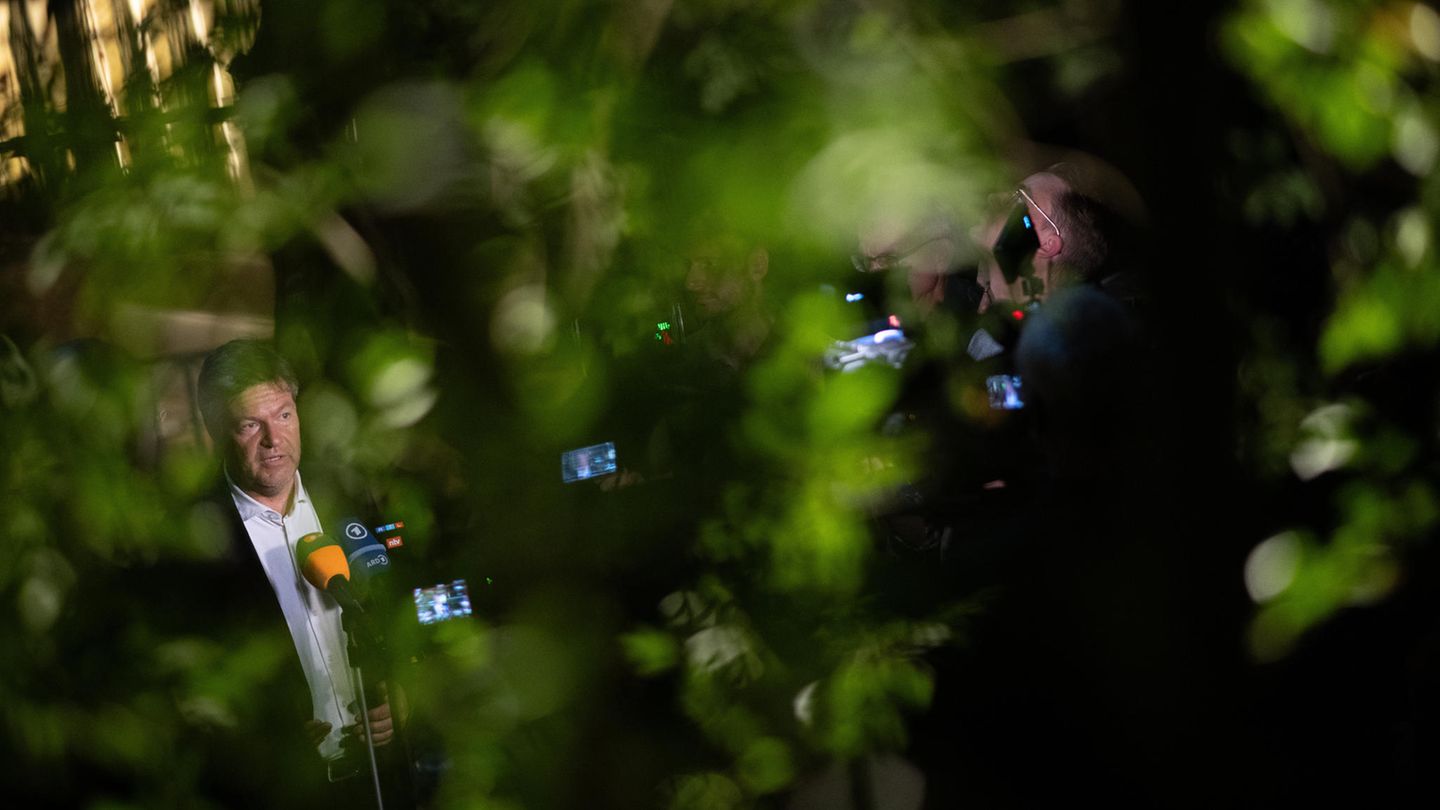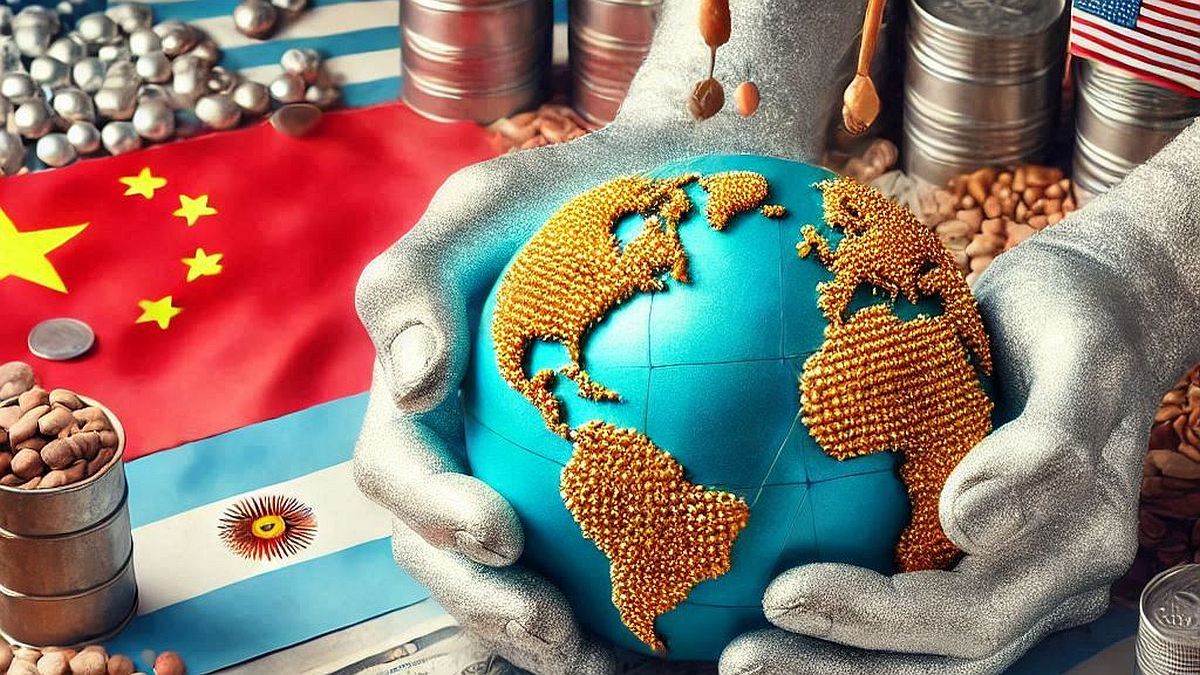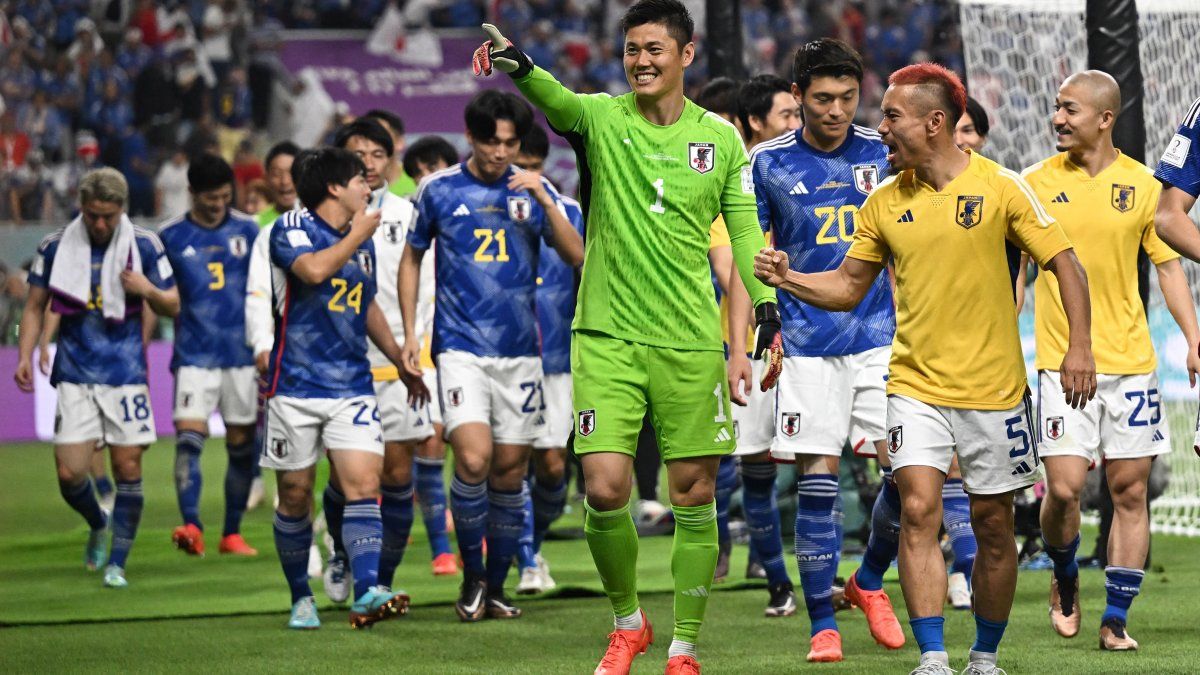China and the European Union are arguing over tariffs on electric cars. Why the German Vice Chancellor had a long day in Beijing and some hope in Shanghai.
It is almost midnight when Robert Habeck takes off his jacket on the terrace of the Kempinski Hotel in Shanghai. But now for the last time that day. It is still humid, a gentle drizzle is beginning to cool the air. “We have made a start,” he has just said into the “Tagesthemen” camera. “At least now we are no longer just talking about each other, but with each other.”
Shortly before, the Chinese trade minister announced that China now wants to start negotiations with the EU Commission to prevent countervailing tariffs. For Habeck, this means two things: firstly, it was a surprisingly successful day. And secondly, that he really needs another beer now.
At least the first thing was not yet predictable in the morning.
“This is absurd,” complains the Chinese
Avoid walking and only do sports indoors, reported the weather app for Beijing on this Saturday in June. Outside, on the streets of the Chinese capital, the usual smog prevailed. Inside, however, in the huge hall of the State Reform Commission, some things seemed surprisingly clear. So this often enigmatic China can also be straightforward?
Overcapacity, dumping prices? “That is absurd,” said the powerful chairman of the reform commission. “Our direct relationship is already negatively affected,” said the German Vice Chancellor. The Chinese man spoke about the impending EU punitive tariffs on electric cars. The German man spoke about China’s support for Russia in the war against Ukraine. Of course, none of the men raised their voices, but the tone for this meeting was already set with the opening statement.
Day two of his five-day trip to the Far East, officially this morning was about the “1st High-Level Dialogue within the Framework of the German-Chinese Cooperation Mechanism on Climate Change and Green Transformation” – yes, the many words all fit on a large partition wall covered with blue fabric. In German and in Chinese. Next to it are the flags of both countries, in front of them the two delegations sit opposite each other at four long rows of tables draped with tablecloths.
Robert Habeck in China: First visit after two and a half years
Officially, it’s about the climate. But because this is the German Vice Chancellor’s first trip to China after two and a half years in office, the discussion also involves questions of even greater fundamental importance: How do the two get on? Not so much Robert Habeck and Zheng Shanjie – who didn’t even smile when they shook hands in front of a silk picture with flowers. Rather: How does it work between Habeck and China? And the other way around? And last but not least: How far does the German China strategy go in practice?
Which brings us back to the topic that Habeck has been pursuing throughout his trip: punitive tariffs. After months of debate, the European Commission has announced that it will impose duties of up to 38.1 percent on Chinese electric cars from the beginning of July. It is Europe’s first tough reaction to protect domestic industry from a veritable flood of highly subsidized Chinese goods. As is always the case when there is trouble with the Chinese, it is about a level playing field, competition under the same rules and conditions.
Habeck tougher than the Chancellor
Habeck is not a fan of these tariffs, but is by no means as strictly against them as the Chancellor. As Vice President, he supports the EU’s planned approach towards Germany’s largest trading partner. At the start of the tour, he explained his conflict by saying that the triad of partner, competitor and system rival described in the China strategy has recently had to be given more and more emphasis on the back. China is developing into a rival in many areas.
Of course, Chinese manufacturers have a certain lead, says Commission President Zheng, but: “This lead is not the result of subsidies.” And so far, only 12.5 percent of all electric cars produced in China have been exported. Less than the Germans. But how many more will there be? And at what prices? It’s not just German manufacturers who are worried about this.
Their CEOs are probably among the first to learn why regular visits to China are so important. A few years ago, Germans still thought that a Chinese electronics boom was out of the question. Their industry was too backward. They also ignored the alarming news that their representatives cabled home during the pandemic. Their development was too slow. After Corona, when CEOs were able to travel again, the shock of reality was correspondingly great, it is said.
“Open conversations” – that means: dispute
And this shock does not stop: China’s largest electric car manufacturer BYD wants to double its production capacity in the coming years. Capacity utilization is currently not even 50 percent. It is not just these overcapacities that Habeck criticizes – after all, as an export economy, we have them ourselves. It is not just state subsidies either – those exist in Europe too. The fatal thing is the combination of both: state-subsidized overcapacities that are used to conquer other markets.
That’s how Habeck explained it throughout the day to the Chinese, the Minister of Industry and the Minister of Trade. Afterwards, they said, they had “very open, intensive discussions,” which usually means nothing other than that they had told each other what they thought.
Sounds strange, but: You can build on that.
Source: Stern
I have been working in the news industry for over 6 years, first as a reporter and now as an editor. I have covered politics extensively, and my work has appeared in major newspapers and online news outlets around the world. In addition to my writing, I also contribute regularly to 24 Hours World.




